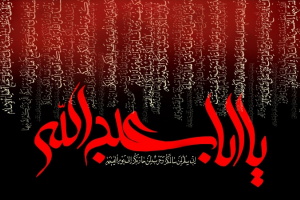Welcome to the 2nd part of the 40-plus episodes of a new and interesting series titled “Muharram Mourning Traditions in Different Lands” that we started broadcasting as of yesterday October 15 on a daily basis, to commemorate the heartrending tragedy of Karbala, and the martyrdom of Imam Husain (AS), the grandson of Prophet Mohammad (SAWA).
In this series, which delves into the various mourning traditions associated with the Immortal Epic of Ashura in various countries of the world, we look at the earliest history of mourning for Imam Husain (AS).
Today, we focus on the evolution of the mourning ceremonies in Iraq immediately after the tragedy. Stay with us.
The very first mourning ceremony for Imam Husain (AS) took place on 11th of Muharram 61 AH, the very next day after the tragedy of Ashura, right next to the decapitated bodies of the Chief of Martyrs, and his sons, brothers, nephews, kinsmen and loyal companions. This very first mourning ceremony on the plain of Karbala was attended by survivors of history’s most heartrending tragedy, that is, the noble womenfolk and children of the Prophet's Blessed Household, the Ahl-al-Bayt (peace upon them), including the martyred Imam’s surviving son and successor, Imam Zain al-Abedin (AS), who couldn’t take part in armed combat because of being bedridden due to high fever. The mourning was led by the Prophet’s granddaughter, Hazrat Zainab (SA).
This very first mourning ceremony ended abruptly when the stone-hearted commander of the Omayayd army, Omar Ibn Sa'd, ordered evacuation of the bereaved family of the Prophet from the burnt and looted encampment. He then had chains and fetters put on the noble women and children to be marched all the way to Kufa. On the sands of Karbala, where the blood of Imam Husain (AS) and the rest of the martyrs was spilt, Hazrat Zainab (SA) made a powerful and emotional speech which has been recorded in history forever. The extremely moving and poignant speech had an electrifying effect on the audience, and drew the tears of friends and foes alike. A part of her speech is as follows:
O Muhammad! The angels of the sky shower blessings on you, but here is Husain lying in the wilderness, robbed of his turban and cloak and with his limbs dismembered, while your (grand)daughters are made captive. To God is the complaint.
O Muhammad! This is Husain whose head severed from the back of his neck lies exposed to the easterly wind pouring sand upon him, killed by the sons of adulteresses. Ah, what grief you have suffered O Aba Abdillah (Husain).”
Tears rolled down the cheeks of all those who heard the lamentation of their Prophet’s granddaughter, whether friend or foe. When the Caravan of Captives arrived in the city of Kufa, multitudes of people had gathered around to watch it. This unwarranted gathering visibly upset the noble captives. At this, three of the elders of the Prophet’s family, that is, the martyred Imam’s two sisters, Hazrat Zainab and Hazrat Omm Kulthom, and his son, Imam Zain al-Abedin (peace upon them), made powerful and emotional speeches which changed the mood of the people of Kufa. When the unsuspecting Kufans who had turned out to witness what appeared to them a scene of amusement, threw dates towards the captives as sadaqa (alms), the granddaughter of the Prophet could no longer keep silent.
She said in a commanding tone: “We are the daughters of the Messenger of God, alms-taking is certainly forbidden for us.” The effect was electrifying on the crowd and tears rolled down their eyes. They froze into silence, and even horses and camels stopped whinnying. A narrator says that he had never heard anyone deliver such a highly eloquent speech and it made him recall the matchless eloquence of the Commander of the Faithful, Imam Ali ibn Abi Taleb (AS). After praising God and sending blessings on the Prophet and his infallible progeny, she reprimanded the Kufans for their weak faith and double crossing, questioning the reason for their tears now when it was because of their treachery the Ahl al-Bayt have suffered and the tears of the blessed household have never stopped flowing. She likened their tears to moonlight that falls on a grave but has no benefit for the buried corpse. She said, the Kufans because of their dubious traits invited Imam Husain (AS) and then deserted him to be tragically martyred, thereby earning for themselves divine wrath.
“May your tears never stop,” said Hazrat Zainab (SA) in her highly eloquent speech likening the treacherous Kufans to a woman who after toiling to weave the thread undoes her endeavours herself. She reprimanded them for their sedition and sycophancy and said they resembled the grass that grows in unclean soil that even animals are unwilling to smell. She told them that their crime of inviting Imam Husain (AS), betraying him to the forces of Yazid and participating in the shedding of his innocent blood will remain till the Day of Resurrection as an ugly blot upon them, since they have badly hurt the soul of the Prophet of Islam. She warned the deceitful Kufans that if today blood has fallen from the sky because of the martyrdom of Imam Husain (AS), tomorrow they should be prepared for the more grievous punishment of afterlife. Hazrat Zainab (SA) would have continued this highly eloquent sermon of her if her nephew Imam Zain al-Abedin (AS) had not stepped forward and requested her to have patience.
There was loud crying, mourning, lamentation and the sound of wailing could be heard from virtually every house in Kufa. The lamentation and mourning was for Chief of Martyrs Imam Husain (AS), and it also spoke volumes about the brutality and callousness of the Omayyad rulers.
Well dear listeners we have come to the end of our programme today. In our next programme, tomorrow, we will have plenty more to say about mourning ceremonies and traditions associated with Muharram and Ashura.


















